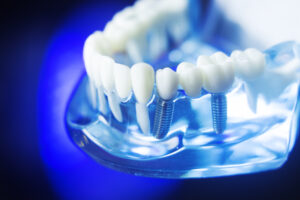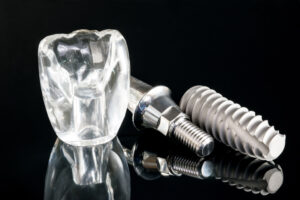TMJ is short for Temporomandibular Joint. This joint has the important job of connecting your jawbone to your skull. Think of it as a hinge that slides your mouth open and shut much like the hinges on a door or gate allow for opening and closing. The difference is that TMJ allows your jaw to move forward and back as well as side to side.
When there are joint dysfunctions, it can lead to significant tension and pain in the jaw and cheekbones. This dysfunction is often referred to as TMJ with an emphasis on the disorder rather than just the name of the joint. You may also hear the medical condition referred to as TMD for Temporomandibular Disorder.
Understanding what TMJ dysfunction is and how it’s diagnosed is critical to getting the care you and your loved ones need when TMJ sets in.
What Causes TMJ Dysfunction?
TMJ or temporomandibular joint dysfunction may result from some form of trauma or a medical condition like arthritis. It may also result from years of clenching the teeth together tightly or grinding the teeth. In many cases, the root cause is unknown.
TMJ can occur on one or both sides of the jaw. It may come and go as a temporary occurrence, or it may last for years. It can cause mild to severe pain and discomfort, so getting an official diagnosis and seeking care with a dentist is critical.
Signs of TMJ Dysfunction
Unusual sounds from the jaw are often among the first signs of TMJ dysfunction. Sufferers have described it as a clicking or popping noise. It can also sound and feel like something grating when the jaw is opened and closed.
You may also experience pain or sensitivity along the backside of the jaw by the years. Pain or pressure may also present on the sides of your face or into your neck and shoulders. You’re most likely to feel it when opening your mouth wide, chewing, or speaking.
In some extreme cases, you may notice swelling on the side of your face. Your teeth can feel like they don’t fit together properly. You may feel your teeth suddenly knock together when eating, or your jaw could get stuck in one position.
How is TMJ Diagnosed?
If you have any signs of TMJ dysfunction, your dentist will perform a thorough checkup. That may involve pressing down on certain points of the jaw to see if it hurts or to detect points of weakness. They may ask you to open and close your mouth to check for any abnormal sounds.
Finally, your dentist will use years of experience and training to look for signs of TMJ dysfunction. X-rays are commonly used as well, and CT scans are necessary in some circumstances. Your dentist will rule out all other possible causes of your symptoms before diagnosing you with TMJ disorder.
Getting the Treatment You Deserve
If you’re experiencing even minor symptoms of a malfunctioning TMJ, now is the time to see a dentist for a proper diagnosis. You don’t want to risk the condition getting worse and leading to more severe symptoms. Proper treatment from an experienced dentist may save you a lot of pain and even injury to your back teeth if your jaw starts to get stuck or allows your teeth to snap shut while eating.
If you’re ready to start your journey to better oral health with Dr. Richard Champagne and a truly collaborative and compassionate dental team, contact Champagne Smiles in Morganville, NJ today to schedule your first appointment.




